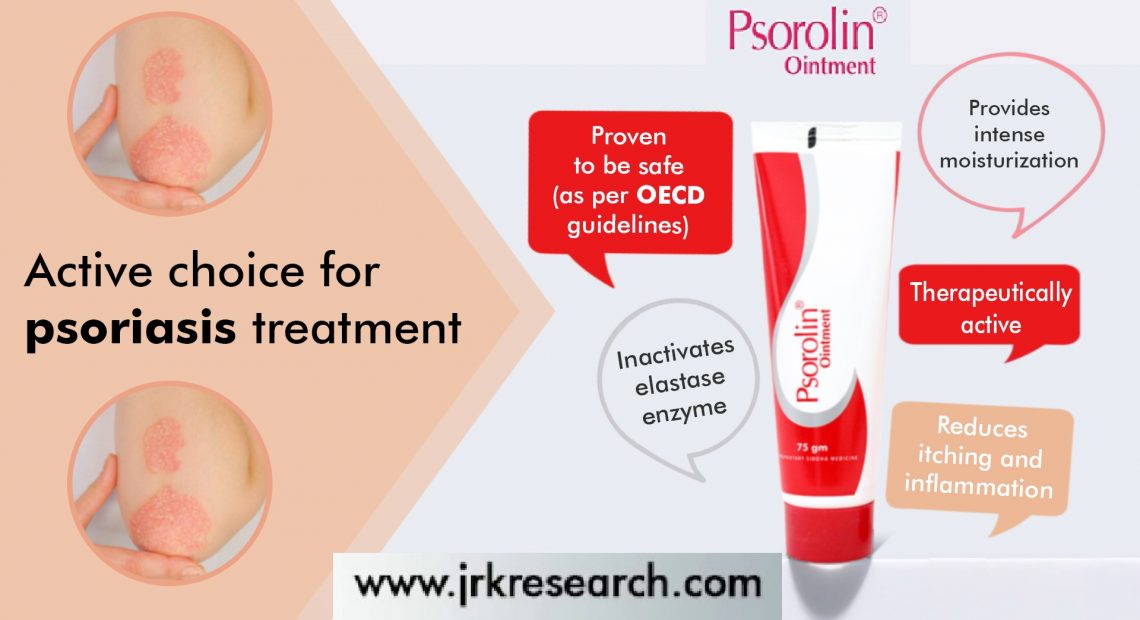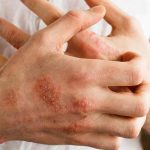

Psoriasis is a chronic, inflammatory condition which affects the skin. The condition causes inflamed, red, flaky and itchy skin, often around the knees, elbows and scalp. Psoriasis is believed to affect 1 to 2 % of population, affecting all ages, races and genders.

What could be the cause?
The actual cause is unknown. Immune modifications, genetics, stress etc., may trigger Psoriasis and leads to acceleration of the growth of skin cells resulting in scaling, itching and inflammation. There are certain external factors likely to trigger development of the conditions like weather changes, medications, infections, skin trauma, smoking and alcohol are all thought to flare up the condition.

What are the available treatments?
- Topical corticosteroids
- Vitamin D analogues
- Anthralin
- Topical retinoids
- Calcineurin inhibitors
- Salicylic acid
- Coal tar
- Moisturizers
Initially, treatment often involves topical creams applied to the skin to help relieve the symptoms of the condition. Treatments vary on the type and severity of psoriasis.

Creams and ointments that you apply to your skin can effectively treat mild to moderate psoriasis. When the disease is more severe, creams are likely to be combined with oral medications or light therapy.
Do moisturize. Dry skin is the severe problem in the outbreaks of psoriasis, so keep your skin well lubricated. After bathing or showering, seal in moisture by applying a generous amount of moisturizing cream or ointment to your skin. Avoid lightweight lotions, which don’t contain enough emollients.

Moisturizing creams/ointments alone won’t heal psoriasis, but they can reduce itching, scaling and dryness. Moisturizers in an ointment base are usually more effective than are lighter creams and lotions. Apply immediately after a bath or shower to lock in moisture. This helps to reduce skin dryness and irritation. Be especially diligent about moisturizing during the winter months, when cold outdoor weather and overheated buildings are a particularly drying combination that worsens psoriasis.

When the skin is hydrated, the scales soften and fall away, alleviating itch and dryness. Emollients create a barrier on the skin’s surface. The barrier protects the surface with oils and allows the skin to rehydrate. This helps to reduce skin dryness and irritation.
Keep Your Skin Moist and Smooth – Ultimately what your skin wants
It’s one of the most effective yet easiest things you can do for irritated skin. It can help your skin heal and reduce dryness, itching, redness, soreness, and scaling. Use more on cold or dry days.

Choose your moisturizer based on how dry your skin is. Ointments are thick, heavy, and good at locking in moisture. Lotions are thinner and get absorbed more easily. Or, you can pick a cream/ointment that falls somewhere in between. Look for a fragrance free moisturizer.
Ointments that trap moisture in your skin work best in Psoriasis. One such promising ointment is PSOROLIN ointment – The Active Choice for Psoriasis Treatment
Psoriasis ointment which is very effective during the scaling stage of psoriasis

Key benefits
– Wrightia tinctoria contains triterpenoids, β- amyrin and β- setosterol that treat skin diseases like Psoriasis – Possess anti-inflammatory and wound healing activities
– Cynodon dactylon possesses wound healing and anti-inflammatory potential
- Inactivates elastase enzyme that worsens the condition
- Reduces itching and scaling quickly
- Retards cell division & inflammatory process
- Provides intense moisturization
- Maintains Hydro-lipo balance of the Psoriatic skin
Usage Instructions
- Apply Psorolin ointment over the affected areas thrice a day
(OR)As directed by the physician.
For external use only
http://www.jrkresearch.com/psorolin-ointment.php








